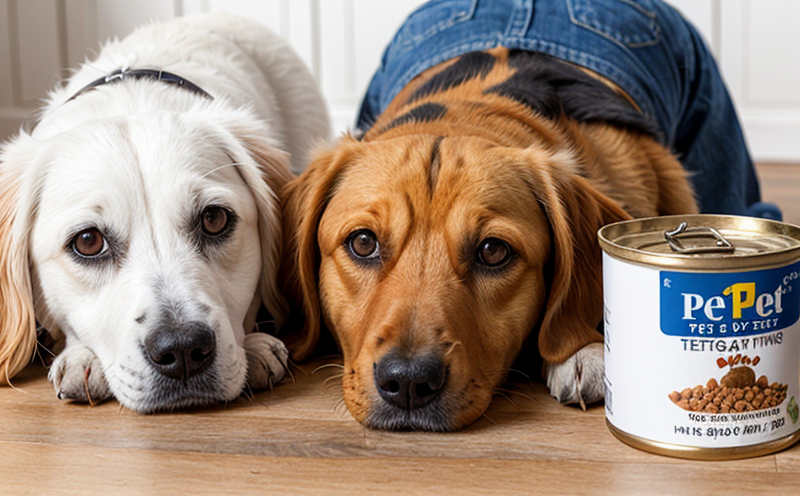ISO 50382 Vitamin K Detection in Pet Food Samples
The ISO 50382 standard provides a robust methodology for detecting and quantifying vitamin K content in pet food samples. This service is particularly critical for ensuring the nutritional adequacy of pet foods, thereby supporting the health and well-being of pets. Vitamin K plays a vital role in blood clotting and bone health, making its accurate measurement essential.
The testing process involves several steps to ensure precision and reliability. Initially, samples are prepared by thoroughly homogenizing them to achieve a consistent mixture. This ensures that the vitamin content is evenly distributed for accurate analysis. The next step is extraction of vitamins using appropriate solvents, which must be carefully selected based on their compatibility with the sample matrix.
The extracted vitamins are then subjected to high-performance liquid chromatography (HPLC) coupled with diode array detection (DAD). This technique allows for precise separation and quantification of vitamin K within a complex mixture. The calibration curve is prepared using known standards, ensuring that each measurement corresponds accurately to the actual vitamin content.
The analytical procedure must adhere strictly to ISO 50382 specifications to ensure compliance with international quality standards. This includes maintaining strict temperature and pH conditions during sample preparation, as well as precise flow rates in the HPLC system. The use of validated reagents and calibration solutions is paramount to achieving reliable results.
The final step involves interpretation of the chromatogram obtained from the HPLC analysis. Analysts must possess a deep understanding of chromatographic patterns associated with vitamin K, enabling accurate identification and quantification. Reporting results typically includes detailed information on the amount of vitamin K detected, along with any potential deviations from expected values.
This service is crucial for pet food manufacturers aiming to comply with regulatory requirements and ensure product quality. By accurately detecting vitamin K levels, companies can maintain consistent nutritional profiles in their products, which is vital for pets' health and development.
Why It Matters
The accurate detection of vitamin K in pet food samples is not only a regulatory requirement but also essential for the well-being of pets. Vitamin K deficiency can lead to various health issues, including impaired blood clotting and bone disorders. Ensuring adequate levels of this nutrient helps prevent these problems.
Moreover, consistent adherence to international standards like ISO 50382 is crucial for maintaining consumer trust and confidence in pet food products. This standardization ensures that all manufacturers are held to the same high quality benchmarks, leading to safer and more reliable pet foods.
For R&D teams within pet food companies, this testing service provides valuable insights into ingredient interactions and formulation adjustments. By understanding how different components affect vitamin K levels, they can innovate new products that meet both nutritional standards and palatability preferences.
Benefits
The benefits of this service extend beyond compliance to include several strategic advantages for pet food manufacturers:
- Enhanced Product Quality: Ensures that each batch meets the required vitamin K content, enhancing overall product quality.
- Regulatory Compliance: Adherence to ISO 50382 standards helps avoid penalties and recalls due to non-compliance issues.
- Innovation Opportunities: Provides data that can be used for developing new formulations tailored to specific nutritional needs of pets.
- Brand Reputation: Demonstrates commitment to pet health, thereby building a strong brand reputation among consumers.
Competitive Advantage and Market Impact
In the competitive landscape of pet food manufacturing, this service offers significant advantages:
By providing accurate vitamin K detection, manufacturers can differentiate their products from competitors who may not adhere to such stringent standards. This differentiation translates into better product quality perceptions in the market.
The ability to consistently meet regulatory requirements also reduces the risk of lawsuits and negative publicity associated with substandard or unsafe products. Such incidents could severely damage a company's reputation and market position.
Furthermore, the data generated from this testing service can be used for strategic marketing initiatives, highlighting the nutritional benefits of their pet food offerings to consumers who are increasingly concerned about product quality and safety.





